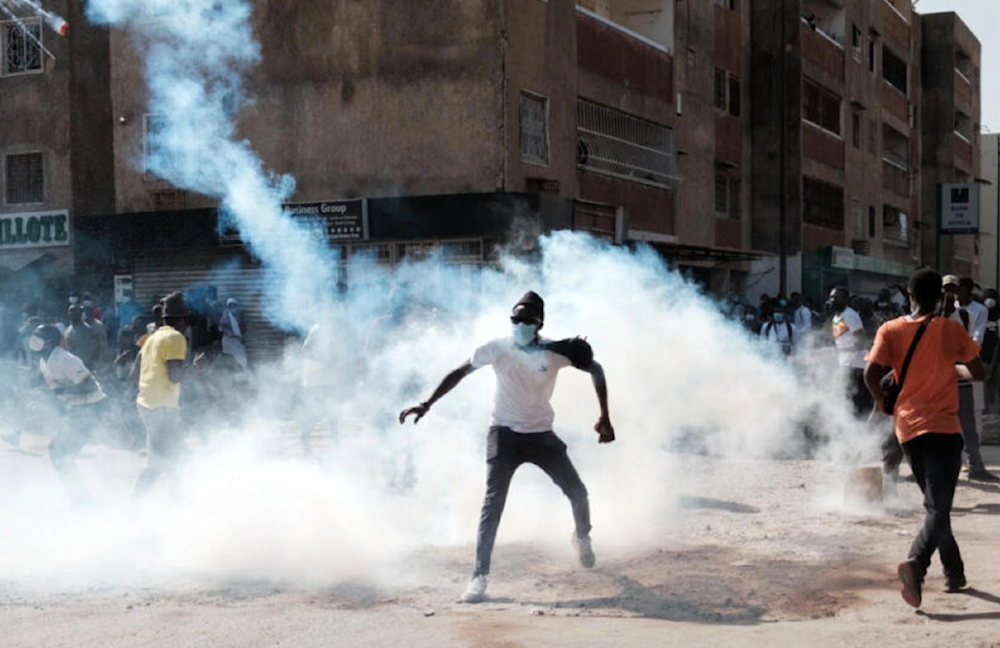Senegal cuts internet again amid widening crackdown on opposition
Rights organizations have accused the government in Senegal of adopting excessively coercive measures against protesters in an effort to quell opposition to the delay of elections.
-

A protester throws back a tear gas canister during clashes with police on the sidelines of a protest against a last-minute delay of the Senegalese presidential elections in Dakar, Senegal, on February 9, 2024. (AFP)
Senegal suspended mobile internet service on Tuesday ahead of a planned march against the postponement of a presidential election, with rights organizations accusing the government of adopting excessively coercive measures to quell strong opposition to the delay.
With less than three weeks before the scheduled February 25 vote, the parliament's decision to postpone it until December sparked worries amid authorities in coup-prone West Africa.
Clashes between security forces and protesters erupted last week in Senegal's capital and various cities, marking the first widespread unrest over the postponement of the country's presidential election, raising concerns about potential prolonged instability.
Three people were killed and nearly 270 people were allegedly imprisoned during the protests that rocked the capital Dakar and many other Senegalese cities on Friday and Saturday.
Following the violence, the government refused to allow activist organizations' planned quiet march on Tuesday and forced cell companies to ban internet access.
#Senegal has been witnessing clashes that have claimed the lives of at least 15 people so far.
— Al Mayadeen English (@MayadeenEnglish) June 4, 2023
What is happening in the West #African nation? pic.twitter.com/AWVgfmtyc2
In a statement, the communications ministry claimed that the ban was essential because inappropriate and subversive internet postings had sparked the prior riots.
Netblocks, an internet monitoring service, detailed how the event highlights the country's expanding use of mass censorship.
The United Nations Human Rights Office and Amnesty International accused the government of violating fundamental rights to freedom of assembly and speech while employing disproportionate force against demonstrators.
During a briefing Tuesday, UN human rights spokesperson Elizabeth Throssell called on the authorities to "order security forces to respect and ensure human rights."
Amnesty's West Africa office posted on X that the suspension of internet access and bans on silent marches are a "violation of the right to freedom of expression and the right to information."
The march on Tuesday will now take place on Saturday at 1100 GMT, according to organizers, and individuals from all around the country are encouraged to participate. Sall has stated that the election postponement was essential due to electoral problems that jeopardized the vote's integrity, while several opposition parliamentarians and civil society groups have condemned it as an "institutional coup".
US State Department Spokesperson Matthew Miller told reporters that the US was "extremely concerned" about the situation in Senegal, and Secretary of State Antony Blinken told Sall during a phone call Tuesday that elections should go forward as planned.
France also suggested that elections should take place "as soon as possible" and urged officials to use proportionate force during protests.
A diplomatic team from ECOWAS, West Africa's largest political and economic grouping, has been in Senegal since Monday to address the situation.
In a statement, it suggested dispatching a new mission as soon as next week to assist organize a national political conversation "as a matter of emergency."

 3 Min Read
3 Min Read








